Indian farmers continue their fight for comprehensive minimum support price guarantees covering every agricultural crop nationwide. SKM leader Jagjit Singh Dallewal addressed thousands of protesters at Delhi’s iconic Jantar Mantar, demanding immediate government action. This latest demonstration marks another major milestone in the ongoing agricultural reform movement.
Understanding the Core Demands Behind the Protest
The primary issue centres around extending MSP coverage beyond the current limited crops to include all agricultural products. Currently, the government provides minimum support prices for only 23 crops, leaving many farmers without guaranteed income protection. This creates significant economic uncertainty for producers of fruits, vegetables, pulses, and other essential food items.
Dallewal emphasised that comprehensive MSP coverage would ensure fair compensation for every farmer regardless of their chosen crops. The current system favours wheat and rice growers while neglecting those producing diverse agricultural products. This imbalance has contributed to reduced crop diversity and ongoing farmer distress across multiple states.
The protest highlights the urgent need for systemic changes in India’s agricultural pricing policies and market structures. Farmers argue that guaranteed minimum prices would provide economic stability and encourage sustainable farming practices. Without such protections, many agricultural producers face severe financial hardship despite feeding the nation.
Economic Impact of Current MSP Limitations
The restricted MSP system creates market distortions that affect both farmers and consumers throughout the supply chain. Farmers growing non-MSP crops often receive prices below production costs, forcing them into debt cycles. This situation has contributed to widespread agricultural distress and farmer suicides across rural India.
Market dynamics favour MSP-covered crops, leading to overproduction of wheat and rice while creating shortages elsewhere. Pulses, oilseeds, and horticultural products frequently see price volatility that harms both producers and consumers. The lack of guaranteed prices discourages farmers from diversifying their crop choices effectively.
State procurement agencies focus primarily on purchasing MSP-covered crops, leaving other agricultural products to volatile market forces. Private traders often exploit this situation by offering below-market prices to desperate farmers. The absence of government intervention in these markets perpetuates rural poverty and agricultural stagnation.
Regional Variations in Farmer Concerns
Different agricultural regions across India face unique challenges related to the limited MSP coverage system. Punjab and Haryana farmers benefit significantly from wheat and rice MSP policies, but struggle with other crops. Meanwhile, southern states producing cotton, sugarcane, and spices experience greater price volatility and income uncertainty.
Maharashtra’s farmers, particularly those growing soybeans and cotton, have been vocal about extending MSP coverage to their crops. The state’s agricultural economy depends heavily on these non-MSP crops, making farmers vulnerable to market fluctuations. Similar concerns exist in Karnataka, Andhra Pradesh, and other states with diverse agricultural production patterns.
Eastern states like West Bengal and Bihar, with significant rice production, benefit from existing MSP policies. However, their farmers also grow vegetables, jute, and other crops lacking guaranteed price support. This creates income disparities even within individual farming communities based on crop choices.
Government Response and Policy Challenges
The central government faces complex economic and logistical challenges in implementing comprehensive MSP coverage for every agricultural product. Storage infrastructure, procurement mechanisms, and budget allocations would require massive expansion to accommodate all crops. Current government facilities already struggle with existing MSP crop volumes and storage requirements.
Administrative complexities multiply when considering the diverse quality standards, seasonal variations, and regional price differences across crops. Establishing fair minimum prices for fruits, vegetables, and speciality crops presents technical challenges beyond traditional grain pricing. Market intervention mechanisms would need complete restructuring to handle such expanded coverage.
Budget implications of universal MSP coverage could strain government finances and create fiscal policy challenges. Current MSP operations already represent significant public expenditure, and expanding coverage would multiply these costs substantially. Policymakers must balance farmer welfare with broader economic stability and resource allocation priorities.
Protest Organisation and Leadership Structure
The Samyukt Kisan Morcha coordinates these nationwide protests through established farmer organisations and local leadership networks. Dallewal’s appearance at Jantar Mantar demonstrates the movement’s commitment to peaceful but persistent advocacy for agricultural reforms. The organisation has successfully mobilised farmers from multiple states despite logistical challenges.
Key protest strategies include:
- Peaceful demonstrations at symbolic locations like Jantar Mantar
- Coordinated media campaigns to raise public awareness
- Direct engagement with political leaders and policymakers
- Alliance building across different farmer organisations
- Legal challenges to existing agricultural policies
The movement maintains discipline and organisation despite involving thousands of participants from diverse agricultural backgrounds. Leadership rotation ensures sustained pressure on government decision-makers while preventing protest fatigue among participants.
Historical Context of Indian Agricultural Protests
India’s farmer protest movements have deep historical roots extending back to colonial period agricultural policies and practices. The current MSP demands represent the latest chapter in ongoing struggles for fair agricultural pricing and market access. Previous movements have achieved significant policy changes, demonstrating the political influence of organised farmer advocacy.
The 2020-2021 farmer protests against agricultural reform laws showed the power of sustained, organised resistance to policy changes. Those demonstrations ultimately forced the government to repeal controversial legislation, proving that determined farmer movements can influence national policy. The current MSP campaign builds on lessons learned from previous successful protest strategies.
Looking Forward: Potential Solutions and Compromises
Phased implementation of expanded MSP coverage could provide a practical compromise between farmer demands and government constraints. Starting with major non-MSP crops like pulses and oilseeds might demonstrate feasibility before full expansion. Regional pilot programs could test implementation mechanisms and identify potential challenges before nationwide rollout.
Alternative support mechanisms, such as crop insurance improvements and direct income transfers, might address farmer concerns without requiring comprehensive MSP expansion. Price stabilisation funds and market intervention strategies could provide similar benefits with greater fiscal flexibility. These approaches require careful design to ensure they meet farmers’ needs effectively.
As the protest continues at Jantar Mantar and other locations across India, both farmers and policymakers must find sustainable solutions. The demands for MSP on all crops reflect genuine agricultural sector needs that require serious government consideration and response.

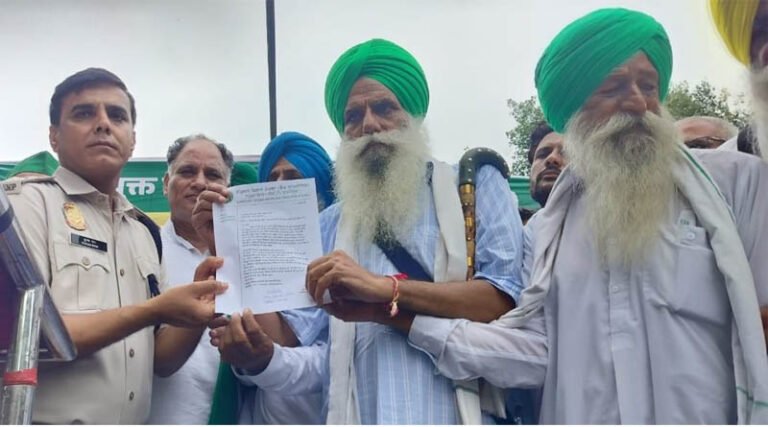
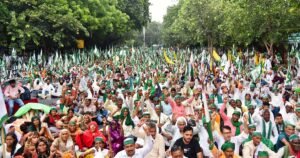
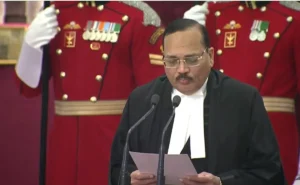
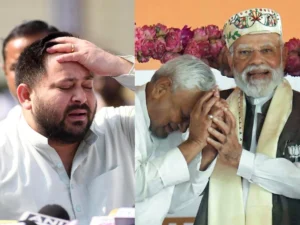
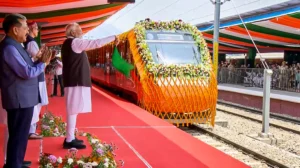


Be First to Comment